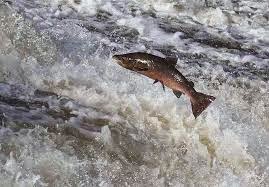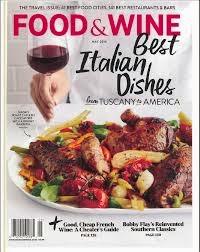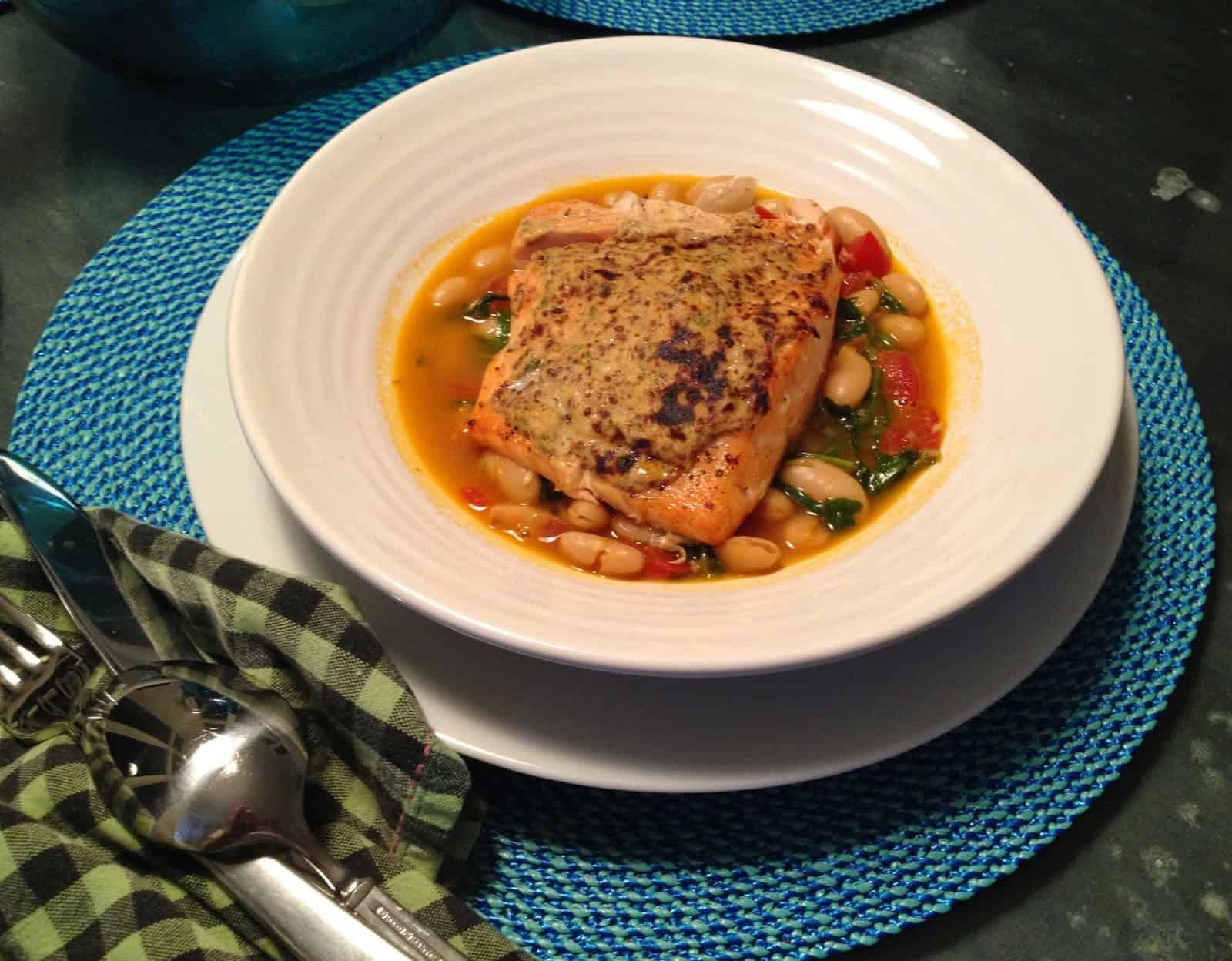
Salmon is a true workhorse in the world of seafood. It is on menus everywhere and seems to come from an endless number of places around the world. On my most recent visit to the market to pick up the fish to make this dish, I saw no less than 5 different salmon offerings ranging in price from 19.99 lb. for Norwegian Wild-Caught Salmon to Farm-Raised Fish from Chile at 7.99 a lb. In between, there was Canadian Wild Caught and Farm Raised and Pacific Salmon of undermined origin. Salmon is, of course, a marvel of nutrition containing those all-important Omega 3 Fatty Acids. If somehow you’ve missed the news, these particular Fatty Acids lower your risk of heart disease. But that isn’t half of what they do according to WebMD.com. They can curb stiffness and the pain of arthritis in the joints. Countries where they are consumed at high levels have lower levels of depression. They aid in Baby Development, improve lung function among Asthmatics, reduce symptoms of Attention Deficit Syndrome, improving children’s mental skills like thinking, remembering and learning and finally, there is even research that suggests Omega 3s protect against Alzheimer’s and Dementia. If you haven’t immediately run out and bought a giant piece of salmon, caveat emptor: Farm raised salmon is not the fount of Omega 3s that Wild Salmon is. So when you buy salmon, try to buy wild caught if your budget will allow.

One of the delights of salmon is how incredibly easy it is to cook. It takes no time at all under a hot broiler or poached in a court bouillon. The recipe I am sharing today is a riff on one I found quite by accident. I had taken a shine to a recipe for Roast Chicken Cacciatore invented by a well-known TV chef and featured in Food and Wine Magazine. The chef will remain nameless because the Chicken was a disaster. But there, on the same page and pictured on the next one, was a recipe for Salmon served atop a Cannellini Bean Stew. I took some liberties with the original ingredients. I added smoked bacon lardons, changed up the greens and altered sizes and proportions of everything else. The result was a dish that combined the lushness of the beans and tomatoes with the sweetness of the fish and the smokiness of bacon. So I no longer think the original dish is very much like mine. And my TV chef’s identity does not have to be revealed. But like the original, it has the distinct advantage of being a one-dish meal. It also can be halved with impunity. Try it one night with some crusty country bread. I am fairly sure you will make it again. Here is the recipe:
Recipe for Salmon with Mustard Sauce and a Cannellini Bean Ragu
Total Time: 50 minutes. Serves 4. Can readily be halved.
For the Cannellini Bean Ragu:
3 tablespoons extra-virgin olive oil
1 large shallot, minced
2 garlic cloves, minced
2 tomatoes, chopped
2 teaspoons finely chopped thyme
Salt
Pepper
Two 15-ounce cans cannellini beans, rinsed and drained
3/4-cup chicken stock
3-4 cups Baby Arugula
2 oz. of Bacon Lardons in ¼ inch dice,
1/2 teaspoon grated lemon zest
For the Salmon:
Extra-virgin olive oil
Four 6-ounce skinless salmon fillets
Salt
Pepper
1 1/2 tablespoons Dijon mustard
1 1/2 tablespoon whole-grain mustard
2 teaspoons dry white wine
2 garlic cloves, minced
1 teaspoon finely chopped thyme
First Make the Ragu:
1. Make the Bacon Lardons by cutting slab bacon into ¼ inch dice and
gently cooking them in a cast iron skillet over moderate heat until they have rendered some of their fat and a crisp and brown.
2. In a deep skillet, add the oil, shallot and garlic and cook over moderate heat, stirring, until softened, 3 minutes. Add the tomatoes, thyme and a pinch each of salt and pepper. Cook, stirring, until the tomatoes start to break down, 4 minutes.
3. Add the beans and stock and simmer until the beans are hot, 2 minutes.
4. Add the arugula, bacon lardons and lemon zest and cook over moderately high heat, stirring, until the arugula is just wilted, 4 minutes; if the bean ragù is too thick, add a little water.
Next, Prepare the Salmon:
1. Preheat the broiler. Line a rimmed baking sheet with foil and brush it with oil. Season the fish with salt and pepper and set on the baking sheet.
2. In a bowl, whisk both mustards with the wine, 2 teaspoons of oil, the garlic, thyme and a pinch each of salt and pepper. Broil the salmon fillets 6 inches from the heat for 2 minutes, until the top just starts to brown. Spoon the mustard on the salmon and broil for 5 minutes, until the fish is nearly cooked through and the top is browned.
3. Spoon the bean ragù into bowls, top with the fish and serve.
You can make the Ragu ahead of time. The ragu can be prepared and refrigerated overnight. Rewarm before proceeding.

